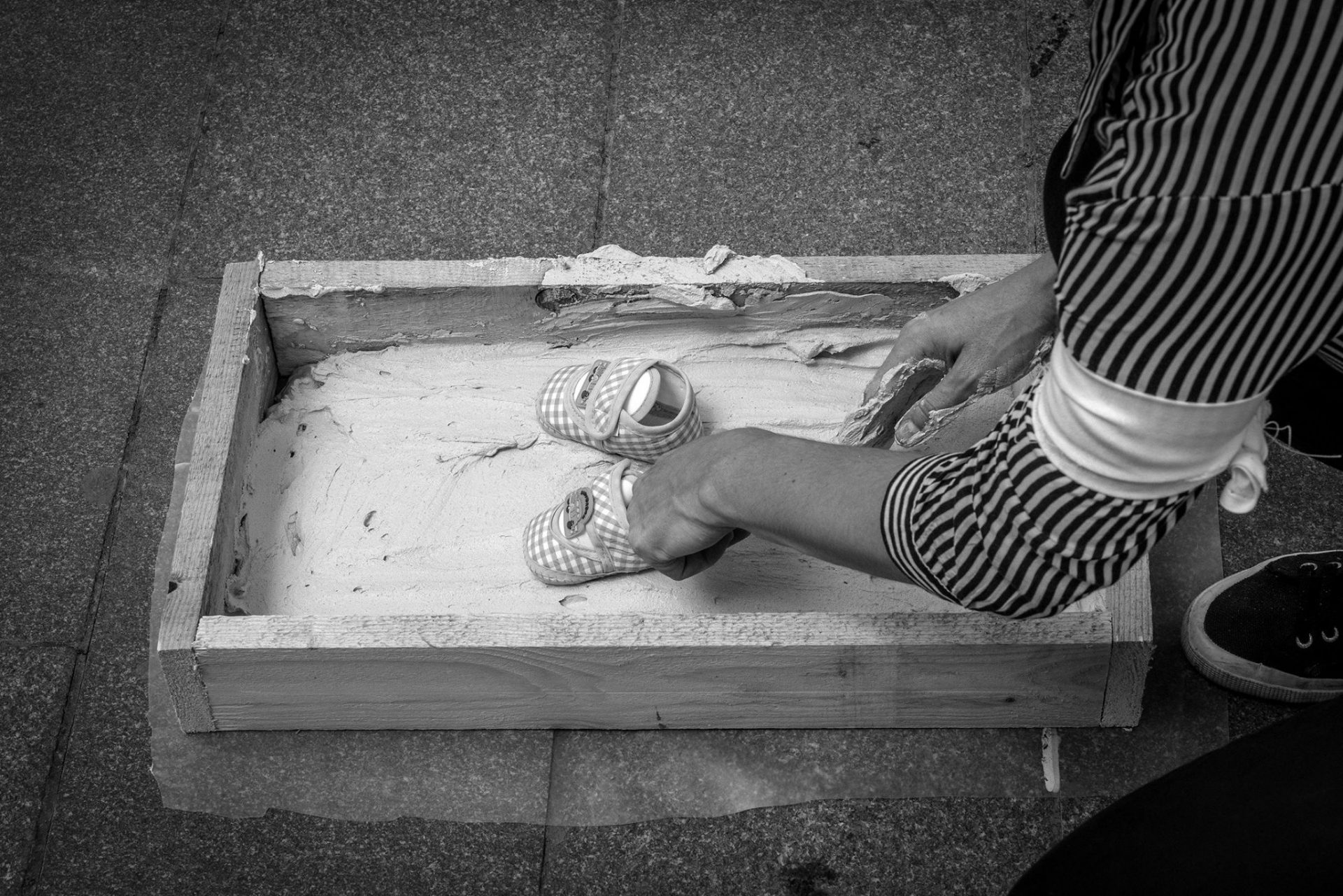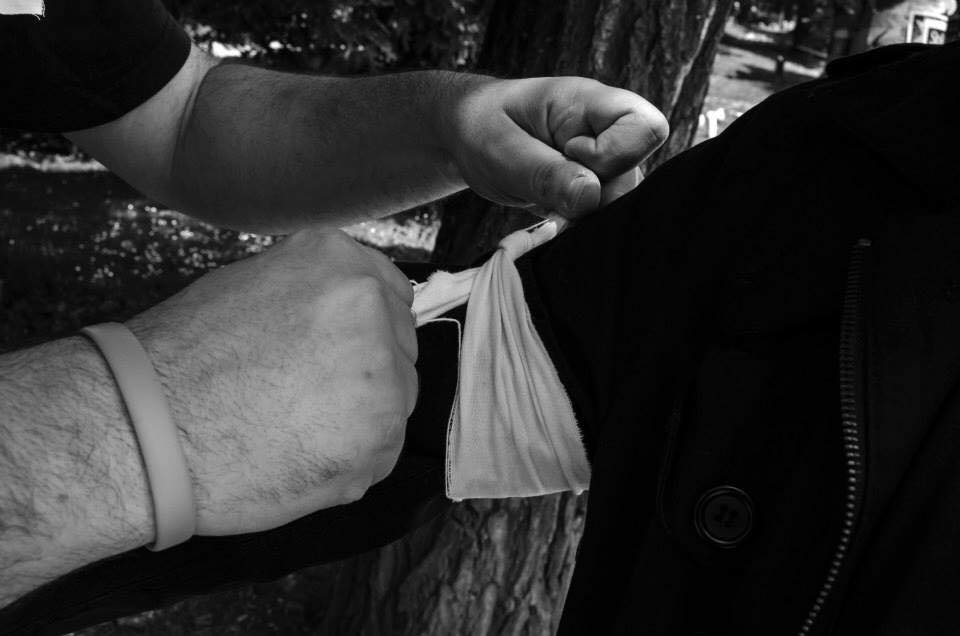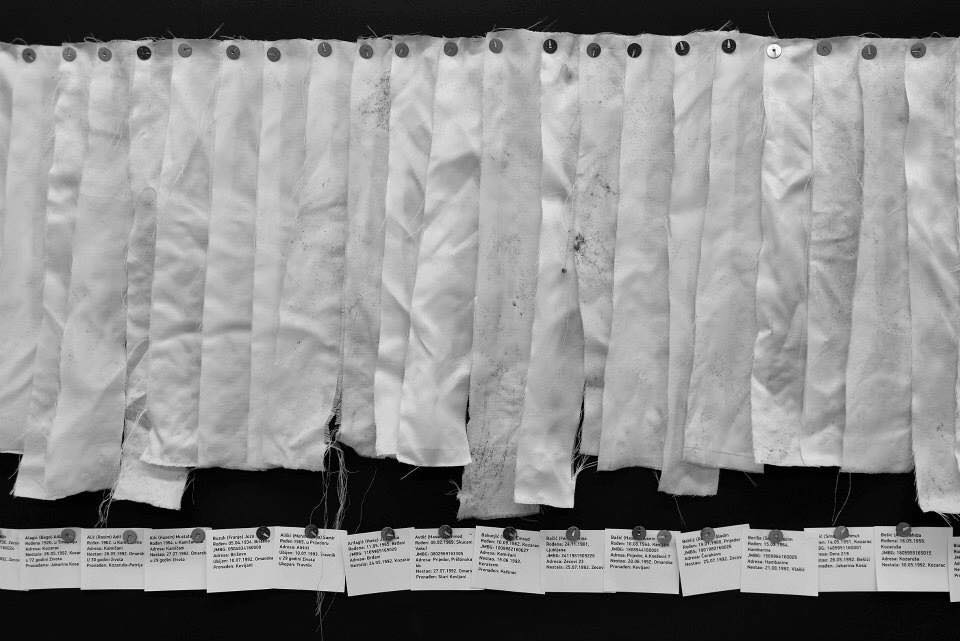
Any visitor to Bosnia will quickly recognize a distinct visual mold: red roofs, bridges across blue rivers, and grey, hand-cut stone pedestrian paths. In northwest Bosnia, the town of Prijedor stays true to this familiar picture- a traditional, scenic environment for its 97,000 inhabitants. Amongst the common indicators of prosperity in 2017- an abundance of specialty coffee shops and smartphones in every hand- Prijedor’s tragedies largely remain hidden. Without previous knowledge of Prijedor’s recent history, one could not tell that three of the Bosnian War’s most fatal death camps were housed just outside the city limits.
On 31 May 1992, just 25 years ago today, Bosnian-Serb forces issued a decree that called for all non-Serbian civilians to mark their houses and arms with white cloth. The marking of all non-Serbians with a physical symbol of difference would later be understood as the expression of intention to commit genocidal acts. Tens of thousands of individuals bearing this marker were sent to the now infamous Omarska, Keraterm, and Trnopolje concentration camps. Subjected to shocking treatment and torture, 3,173 people, died at the hands of their captors. Amongst Prijedor’s dead were 102 children.

In 2012, on the 20th anniversary of the day Bosnian-Serb forces made white armbands mandatory, activists from Prijedor organized themselves into a group known as Stop Genocide Denial. Emir Hodžić, a local activist, spearheaded the campaign by wearing a white armband, silently standing alone in the city center for hours on end. Through their efforts, Worldwide White Armband Day was born. That first year, Prijedor’s mayor forbid a public gathering in commemoration of the victims. He also blocked- and continues to block- the building of a memorial to the 102 children killed. This denial served as further fuel for the observance of 2013’s anniversary, during which individuals from numerous countries, ethnicities, and families gathered in the center of Prijedor. It was here that they laid roses in a display of remembrance. The group called their initiative “Jer me se tice,” which in local language means, “Because it concerns me.” In 2017, the theme of the campaign is “Zajedno protiv fasizma,” meaning “Together against fascism,” reflecting the growth and international nature of the campaign.
Over the years, Stop Genocide Denial has witnessed milestones in the transitional justice process, such as the sentencing of war criminals through the ICTY and the unearthing of a mass grave discovered by the ICMP. As the transitional justice process in Prijedor and across BiH continues to evolve, the group has remained focused on their commitment to memorialize what happened in Prijedor in a productive, meaningful way. Today, the campaign operates on an international scale, urging people around the world to wear a white armband in remembrance of Prijedor’s victims and in solidarity with other victims of mass atrocities across the globe.
Remembrance and memorialization are two key components of any serious transitional justice process. Memorialization, beyond fulfilling the basic human instinct to remember and honor deceased loved ones and community members, also has the power to offer symbolic reparations to individuals and communities affected by violence, challenge narratives that deny or underplay the suffering experienced to create more accurate understandings of history, and foster reconciliation amongst various groups (if the memorialization process is inclusive and participatory.)
White Armband Day is a powerful example of the positive potential of participatory memorialization initiatives. In their 2007 report, The Urge to Remember, the United States Institute of Peace posits that, “Memorial projects that encourage survivors to explore contested memories of the past, promote learning and critical thinking, and facilitate ongoing cultural exchange are more likely to advance social reconstruction. They are also more likely to retain meaning for rising generations than static memorials of long-past conflicts and heroes that fail to interpret their meaning in ways that have contemporary relevance.”

White Armband Day makes discussing and remembering the events at Prijedor and honoring the lives lost a living, breathing, growing, evolving act of memorialization. Survivors of the genocide and those who lost loved ones reclaim the meaning of the white armband, and, therefore, symbolically, reclaim their power and value as human beings. The armbands, originally used to demarcate their wearers as “less than human,” are now worn to represent the strength of the wearers’ voices. The inclusion of people from around the world and the utilization of Prijedor’s collective memory in this campaign illustrates the potential power of memorialization as a catalyst for change across diverse environments.
Looking ahead, the campaign’s cooperative model will continue to grow, reflecting the evolving needs of those directly affected by the atrocities in Prijedor throughout the transitional justice process. The campaign’s ongoing expansion, both geographically and in scope, gives added power to the campaign’s mission by building international momentum. While a brick and mortar memorial would fulfill important needs for survivors and the families and friends of those who were killed, White Armband Day, which began as a temporary platform for remembrance, demonstrates the strength and possibility of participatory, performative memorialization.


